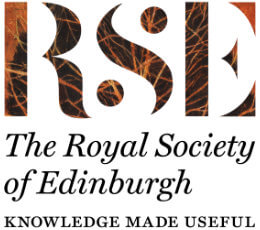Anchor link (audio only): https://spotifyanchor-web.app.link/e/WmdTosZj8xb
Captioned video: https://youtu.be/W44wtbXa9bk
Show Notes
On Season 2, Episode 2, we welcome Professor Rosie Perkins, who is Professor of Music, Health, and Social Science at the Royal College of Music, Seraph Davidson, a Singing Mamas trained song leader, and Laura Hill, who has established a new Paisley-based singing group, MotherVoices.
The show is presented by Brianna Robertson-Kirkland, who is Principal Investigator of the Network.
The shows producer and editor is Sophie Boyd.
Below, we have provided links to resources mentioned on the episode.
More details about the Network
Website: https://portal.rcs.ac.uk/scotland-singing-for-health-network/
Get in touch: singing-for-health@rcs.ac.uk
Twitter: @ScotSingHealth
If you liked this episode, please tweet us with your thoughts and add #connectionnotperfection.
Key links
Details on Rosie Perkin’s ‘Music and Motherhood’ project: https://www.rcm.ac.uk/research/projects/musicandmotherhood/.
Singing Mamas: https://www.singingmamaschoir.com/.
NHS, 5 Steps to Mental Wellbeing: https://www.nhs.uk/mental-health/self-help/guides-tools-and-activities/five-steps-to-mental-wellbeing/.
NHS Advice on Postnatal Depression: https://www.nhs.uk/mental-health/conditions/post-natal-depression/overview/.
Music and Motherhood, funded by Arts Council England: http://performancescience.ac.uk/musicandmotherhood/
Songs from Home, funded by UKRI Loneliness and Social Isolation in Mental Health Research Network: http://performancescience.ac.uk/songsfromhome/
Breathe Arts Health Research: https://breatheahr.org/.
Melodies for Mums, Breathe Arts Health Research: https://breatheahr.org/programmes/melodies-for-mums/.
Pandas: https://pandasfoundation.org.uk/.
Happity: https://www.happity.co.uk/.
Open Access Research
Bind, R.H., Estevao, C., Fancourt, D. et al. (2022), Online singing interventions for postnatal depression in times of social isolation: a feasibility study protocol for the SHAPER-PNDO single-arm trial. Pilot Feasibility Stud 8, 148. https://doi.org/10.1186/s40814-022-01112-1.
Estevao C, Bind R, Fancourt D, et al (2021), SHAPER-PND trial: clinical effectiveness protocol of a community singing intervention for postnatal depression, BMJ Open, 11:e052133. doi: 10.1136/bmjopen-2021-052133.
Fancourt D & Perkins R (2018), The effect of singing interventions on symptoms of postnatal depression: a three-arm randomised controlled trial, British Journal of Psychiatry, 212, 119-121, doi:10.1192/bjp.2017.29.
Perkins R, Yorke S, & Fancourt D (2018), How group singing facilitates recovery from the symptoms of postnatal depression: a comparative qualitative study, BMC Psychology, 6 (41), 1-12, https://doi.org/10.1186/s40359-018-0253-0.
Wulff, V., Hepp, P., Wolf, O.T. et al. (2021), The influence of maternal singing on well-being, postpartum depression and bonding – a randomised, controlled trial. BMC Pregnancy Childbirth 21, 501. https://doi.org/10.1186/s12884-021-03933-z.
Music featured in the episode:
Intro music: Free Over the Fields (ID 1622) by Lobo Loco (licensed under a Attribution-NonCommercial-ShareAlike 4.0 International License)
Outro music: Famba Naye sung by the Dennistoun Cheyne Gang, recorded by Sophie Boyd. Famba Naye is a folk song that comes from Zimbabwe and is sung in the Shona language. “Famba Naye” means “Stay Well, Go Well” in Shona. As the song is about parting, it is a popular song to be sung at funerals, though it can also be sung in other contexts.



